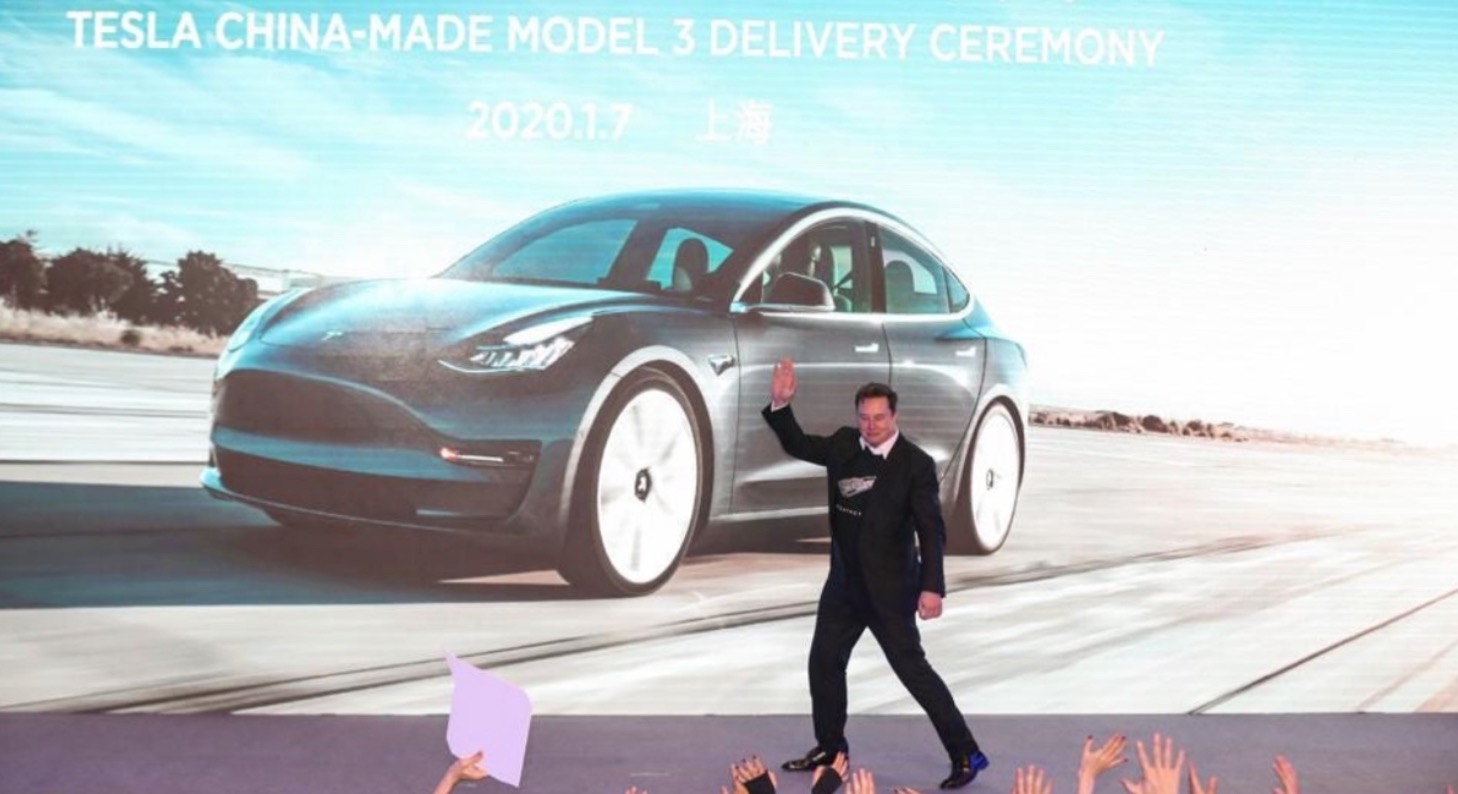14 May Forbes : “Gigantic” Impact From China Lockdowns To Hit Auto Industry Globally: Automobility’s Bill Russo
Media Source : Forbes
12 MAY 2022
by Russell Flannery
China this week reported a 47% plunge in auto sales in April from a year earlier as Covid-19 lockdowns wreaked havoc in the world’s largest auto market and a major global manufacturing hub for auto parts and electric vehicles. Amid business uncertainties in the wake of the country’s Covid policies, “one thing remains certain,” China’s state-run Xinhua news agency said yesterday. “China will stick to its dynamic zero-COVID policy.”
So what’s ahead for the global auto industry? I spoke on Tuesday with Bill Russo, the founder and CEO of Automobility, a Shanghai-headquartered strategy and investment advisory firm. The 18-year China business veteran and former head of North East Asia at Chrysler had been on the ground in Shanghai through this year’s lockdowns until last week, when he returned home to the United States.
Industry supply chains will remain constrained for the foreseeable future, fueling inflationary pressure, Russo said in a Zoom interview. Winning brands will need to vertically integrate their businesses into semiconductors and EV batteries, while Tesla will likely overcome current woes in the China market due to its Apple-like following, he predicted. Excerpts follow.

Tesla CEO Elon Musk gestures during the Tesla China-made Model 3 Delivery Ceremony in 2020, underscoring the country’s importance to the U.S. automaker. (Photo by STR / AFP) / China OUT (Photo by STR/AFP via Getty Images) AFP VIA GETTY IMAGES
Flannery: How’s the pandemic impacting the industry and the auto market?
Russo: It’s severe — very bad. It’s not just Shanghai. You’ve got the Shanghai corridor – the Yangtze River delta and the world’s largest port there. It’s a supply base for vehicles made throughout China and the world. There’s a knock-on impact from the disruptions that were already there before the lockdowns — the trade issues, then the chip supply issues, then the Ukraine war — that are now compounding problems and sending shock waves through the supply chain. Although the lockdown depresses demand, the biggest impact has been on the supply side, which involves the ability to move parts, get people in factories, manufacture components and assemble vehicles. There are severe constraints now. Adding in all of the new logistical problems on top of that, you’ve got a perfect storm of emanating waves of disruption.
Flannery: China’s April sales numbers this week continued to show year-on-year EV sales growth.
Russo: Demand is not the primary issue. But let’s factor in that March EV sales were 465,000 and April was around 299,000, so the market has taken a sharp drop of 36%. Comparatively, sales of internal combustion engine vehicles were down more than 50%. So overall, the industry is taking a gigantic hit. The secular shift to electrification is still there, but it’s now affected by the inability to get components. And on top of that, you’ve got all these inflationary forces that are driving up prices, which is going to have a knock-on, negative effect on demand as prices go up.
Flannery: Does the impact differ between industry newcomers and older makers?
Russo: NIO shut early and they’re not even in Shanghai – they’re based in Hefei but their R&D and a lot of their supply chain is the Yangtze Delta region. Tesla for weeks couldn’t produce anything. Now (Tesla) has a “closed loop” system, but the problem is getting parts. You can open the factory up and build what you had in the either in-transit or in-factory, but, if you can’t get key components manufactured and delivered, then you’re not going to be able to keep that going very long. You can sell from built-up inventory, but we’re at the end of that now in mid-May. Adding another shift of workers won’t help to make up lost production volume, even if you have customers at the door. Brands like Tesla and the EV brands have been dealing with short supply, not short demand. You can make it up, if you get it under control within six weeks. That’s not going to happen.
So the industry is taking a big hit. It’s not just going to be felt in China – it’s going to be felt globally. Tesla built 51% of its sales last year in China. They’ve recently opened the giga factory in Berlin now, but they’re going be short some units selling back into Europe of certain nameplates like the Model 3 that have been historically sourced from China.
Flannery: How long do you think supply-side disruptions will last?
Russo: You can shift supply chains, but that takes time. You have to build either new capacities elsewhere, or flex capacities that may already exist elsewhere. If it’s material shortages or price inflation because of shortages of nickel or manganese or lithium — which are real challenges at the moment, then you will have to open up new mining capacity. That takes years. So supply-side inflationary issues and capacity issues are going to take years to get unwound and fixed.

“Supply-side inflationary issues and capacity issues are going to take years to get unwound and fixed” BILL RUSSO – AUTOMOBILITY
Flannery: Who benefits from supply side shifts?
Russo: Southeast Asia — Vietnam in particular; some would argue other emerging markets that are closer to Europe, too. There’s Mexico as a supplier to North America and there’s reshoring even to the U.S. or Canada. It’s all possible to make sure that you have a controlled, reliable source of components, particularly with EV batteries because EV demand has taken off. The auto industry is now all-in on electrification. In this industry, you can’t afford to bet on two expensive, multi-billion-dollar horses. If you’re going in on EV, you’ve got to go all-in.
That means you have to control the supply chain in ways that you didn’t in the internal combustion engine era. Suppliers were pretty much tied to the carmakers then. In the battery EV era, you don’t have that type of familial relationship now — you compete with consumer electronics companies for the supply of batteries. We found the same was true for chips. The auto industry found that when it comes to chip suppliers. They’re not the big dog in the food chain. The key point of differentiation of today’s car is the sophisticated electronic features of the car. If you’re a chip company like a Nvidia, Intel or TSMC, you’ve got multiple verticals where you can sell your components and the automotive industry is relatively small when compared with other product categories that require their components.
The battery market is going to be a repeat of this, only on a much bigger scale, because you’d have to secure the supply of elemental ingredients that today are not historically part of the automotive industry’s bill of materials. Carmakers are typically far removed from mining companies. They don’t have a long history of dealing with the types of suppliers that are typically in the battery-pack assembly supply chain.
Flannery: Then automakers are going to vertically integrate? Tesla suggested that recently.
Russo: There’s no choice. Otherwise, you’re going to be wholly dependent on battery makers like CATL, Panasonic or BYD as your tier one supplier, and they will sell their capacities to the highest bidder. And that’s what’s happening right now.
Flannery: How’s it gone with semiconductors in the last year or so? This has been talked about a while.
Russo: More vertical integration. Take a play from the Apple playbook with Apple Silicon chips. That was a move to vertically integrate and control more of the sophistication and differentiation of the user experience. The auto industry must do something similar. However, traditional carmakers have historically sourced commodity chips to drive down cost. A lot of the reason why they got into the problem they have today is they have relied on commodity-chip suppliers. A lot of those chips are built off mature technology — four- or five-inch wafer technology. They don’t even make the (chip-making) equipment for that now. If you want to scale up and that supply gets taken by a consumer electronics customer — which was what happened during Covid, they can’t scale up. The solution will eventually be to source customized integrated circuits where you have the ability to control the buy and sell of these components. Batteries and chips supply are the key battlegrounds for securing your position in the future of this industry.
Flannery: What’s ahead for Tesla? Will they have new models this year for China?
Russo: It’s like Apple. Tesla has the halo of being the pioneering company in their product category. They are the Apple of the EV industry. The EV buyer is rabidly loyal to the Elon Musk religion. They put up numbers every month when their factories are running that are mind-boggling. We always talk about upstart Chinese EV brands, but Tesla outsells all of them all combined except for BYD. That is, when their plants are running.



Sorry, the comment form is closed at this time.